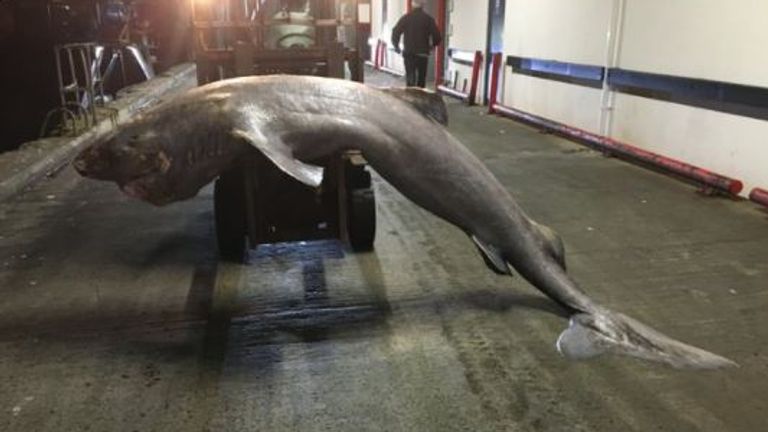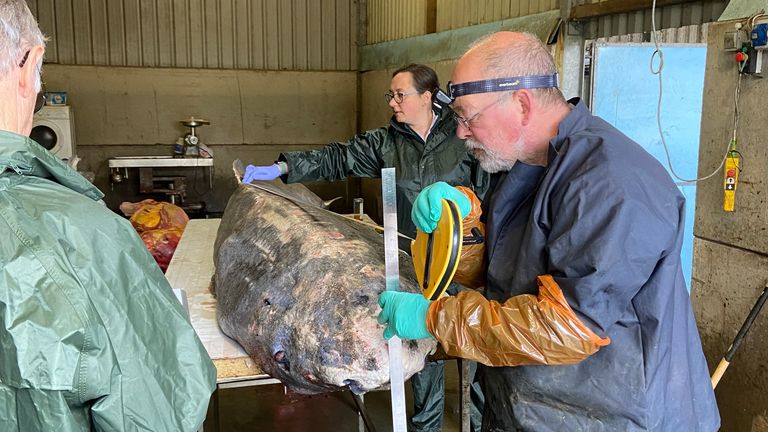Thanks to coincidence, and a Cornish fishing town’s social media page, British scientists have gained their first opportunity to study one of the world’s largest, most elusive and longest-lived animals.
The body of a four-metre-long Greenland shark was recovered from sea off Newlyn in West Cornwall – one of just a handful of recordings of the animal in UK waters.
The slow-growing, deep-water shark lives in Arctic seas and is thought to have the longest lifespan of all vertebrates – living between 250 and 500 years.
Just how rare are these sharks in the UK?
This is only the second Greenland shark to be recovered from UK waters.
The other, which was stranded in 2013, is now preserved at the Natural History Museum in London.
So the chance to carry out an autopsy was an “exceptional” opportunity, say experts.
“Of course it’s sad to study an animal that’s died,” says Rob Deaville who runs the Cetaceans Stranding Programme at the Zoological Society of London.
“But this gives us an opportunity to study creatures we normally can’t get access to.”
What killed the shark – and how old was it?
The initial examination couldn’t explain why the shark died, although there was some evidence of an infection.
Precisely ageing an animal as long-lived as a Greenland shark requires specialist carbon-dating techniques, but based on its size, this shark is thought to be less than 150 years old – a long way from reaching her prime.
The team carrying out the autopsy took a range of samples to study the shark’s life history, diet, exposure to pollution and genetic samples to study its evolution.
“This will feed into research for years to come about its life,” said Mr Deaville, “not just how it died.”
‘Could people please keep eyes open for a DEAD SHARK?!!’
But they very nearly missed the opportunity to study the shark altogether, if it hadn’t been for the person who first spotted it.
Wildlife biologist Rosie Woodroffe was walking her dog Beluga on Newlyn beach on Sunday when she saw the stranded animal and quickly recognised it as a Greenland shark.
But before anyone could come and retrieve the giant, it was washed out to sea again.
“I was gutted when the tide took it away,” said Ms Woodroffe, a professor at the Institute of Zoology.
She posted on the fishing port’s social media page: “Could people please keep eyes open for a DEAD SHARK?!!”
And the next day, a local boat tour company recognised the rare ocean giant and towed its remains ashore.


